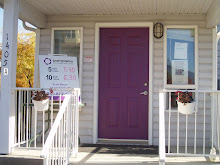Garry Marr, Financial Post · Tuesday, Jul. 27, 2010
Not that there are a lot of people buying houses these days, but the answer to the age-old question of whether to go long or short on your mortgage is unclear yet again.
The Bank of Canada’s second quarter-of-a-point rate increase in the past two months is likely not going to do much to boost a real estate market that saw sales drop almost 20% across the country in June from a year ago.
The popular variable-rate product tied to prime that helped people buy a lot more house with more debt is going up too. The prime rate at the major banks, which tracks the Bank of Canada’s rate, is now at 2.75%.
But a funny thing happened as the Bank of Canada was raising rates. With much of the credit crisis seemingly behind us, the discounts on short-term borrowing are increasing as the cost of funds for banks also fall. Instead of borrowing at 100 basis points above prime, it’s now 70 basis points off prime.
At 2.05%, a variable-rate product today may look as attractive as ever, but the five-year fixed-rate closed mortgage is falling fast. It can now be had for a shade under 4%, says Rob McLister, editor of Canadian Mortgage Trends.
“Bond yields have fallen out of bed and nobody expected that,” said Mr. McLister, adding the spread between the five-year Government of Canada bonds and five-year mortgages is still large enough that the banks may reduce long-term rates even more. However, at about 4%, the five-year closed fixed-rate mortgage isn’t far off its record low.
Bank of Montreal senior economist Sal Guatieri does agree that variable-rate products have worked out better than fixed-rate mortgages throughout history, but says the tide may be turning.
“Given that the central bank has already raised rates a couple of times now and will likely continue to raise rates, it probably is a correct assumption to make,” says Mr. Guatieri, noting variable usually works in a declining interest-rate environment. “The next five years might not quite follow the past. You could probably argue it’s wiser to lock in now. It’s a close call.”
Bank of Montreal is forecasting another 25 basis point move in September and says rates will climb another 1.5 percentage points by the end of 2011. If Mr. Guatieri and others are right, by 2012, the variable-rate products out today would clock in at just above 3.75%, if the
“If you are still in that variable-rate product then, you’d have to sweat out the next three years because there would still be possibly more increases,” says Mr. Guatieri, who adds his bank sees the overnight rate eventually going to 4% in the following three years. Based on the present
Fears of such a scenario are driving people into fixed-rate products again. That, plus new mortgage rules that make it easier to qualify for a mortgage if you go for a fixed-rate product with a term of five years or longer.
“The Bank of Canada is doing what it said — it’s going ahead with rate increases. If I was counselling someone, the prediction is rates are going up, so now is a good time to consider locking in for a term,” says Don Lawby, president of Century 21 Canada.
It makes sense, but with variable rate still at around 2%, it’s easy to see why people wouldn’t want to lock in. Even Mr. Guatieri says if you are secure in your financial situation and don’t need to fix your mortgage payments, “you might just want to let it ride.”
There just never seems to be a clear answer on whether to lock in or stay variable.
Read more: http://www.financialpost.com/news/Variable+rate+longer/3329442/story.html#ixzz0vSziPq1z


No comments:
Post a Comment